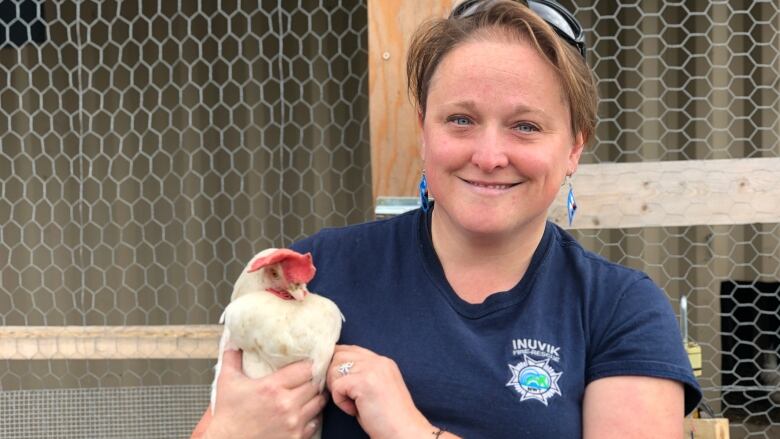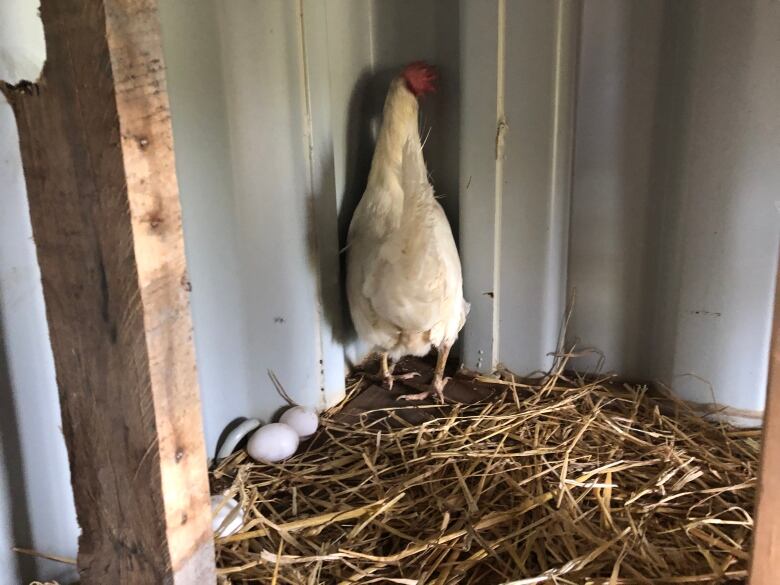Eggsellent! Inuvik greenhouse welcomes 22 new chickens
The Inuvik Community Greenhouse got the chickens and coop with the help of the United Way

There are some new residents at the Inuvik Community Greenhouse 22 chickens, to be exact.
The birds are part of a pilot project that the greenhouse has wanted to try for a while.The plan is for the hens to become a source of home-grown food.
"People in the North eat meat, and they eat eggs and it's expensive and it's hard to get these things up here," said Ray Solotki, executive director of the Inuvik Community Greenhouse.
With $7,500 from the United Way, an organization that raises money for charities in the Northwest Territories and other places in Canada, the greenhouse was able to build a chicken coop and bring up the chickens.

The Dekalb hens came from Kevin Wallington of Polar Eggs in Hay River. The greenhouse typically ships up Wallington's eggs to sell at its Arctic markets and to give to veggie box subscribers.
"Polar Eggs have been really good to us. Unfortunately, shipping within the territory is really expensive," said Solotki.
Solotki is already surprised by how many eggs the hens are laying. They laid 10 eggs on the plane ride over last week, and they are producing about 20 eggs per day.
"I know the stores do the best they can to bring them [eggs] up as quickly as they can but, the reality is they are probably about three weeks old by the time we get them. These are still warm," laughed Solotki.
People in the North eat meat, and they eat eggs and it's expensive and it's hard to get these things up here.- Ray Solotki, Inuvik Community Greenhouse executive director
Starting off, the eggs won't be cheap. Solotki said they will sell them by the half-dozen for $6 to help offset some of the costs "and also show people what it's worth to have good local food."
If this community, outdoor, free-range operation works, the greenhouse may look into expanding.

What to do with the hens over winter
Solotki said they're confident thechickens can survive in the Arctic because a resident in town owns some. They went to him for advice before the hens arrived.
She said they won't be keeping all the chickens past October because the outdoor coop is not meant to house the chickens in the winter.
Solotki said they plan to make soup stock out of the chickens and donate it to the soup kitchen, food bank and homeless shelter.
But they will keep some of the chickens through winter, in a heated space, and if it works, they might try to insulate the coop.

"Lots of people [could] have chicken coops here in Inuvik," said Solotki. "This is not actually as much work as we thought it was."
Starting next week, the eggs will be for sale at the market on Thursday between 4:30 and 6 p.m., and on Saturday from 11 a.m. to 2 p.m.












_(720p).jpg)


 OFFICIAL HD MUSIC VIDEO.jpg)
.jpg)



























































































